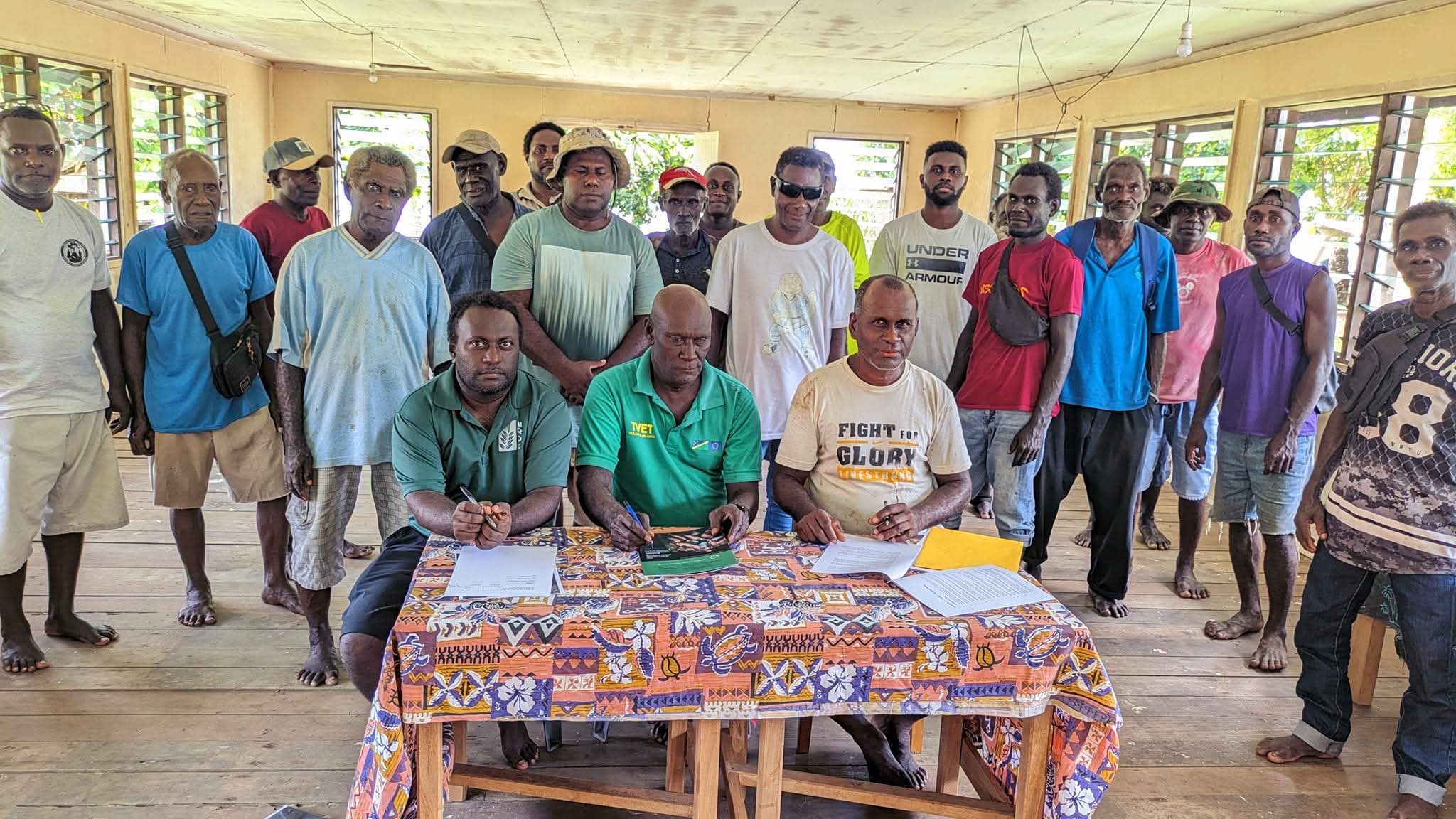The Padezaka Tribal Association in South Choiseul recently has officially signed a landmark 30-year Payment for Ecosystem Services (PES) agreement, marking a significant achievement in the ongoing effort to promote sustainable forest and land management in the Solomon Islands.
The agreement, announced through the Babatana Rainforest Conservation Project, forms part of a long-term carbon initiative jointly developed with the Nakau Programme and the Natural Resources Development Foundation (NRDF).
“This agreement aims to support climate resilience, forest protection, and community development through carbon offset initiatives,” the project team stated.
All stakeholders involved highlighted their commitment to a fair, transparent, and inclusive partnership.
They stressed the importance of ensuring mutual benefits between local landowners and external partners to minimize risks and create the right conditions for long-term success in carbon project implementation.
The PES deal will enable the Padezaka community to receive financial returns and technical assistance in exchange for protecting their forests—contributing to reduced carbon emissions, biodiversity conservation, and improved local livelihoods.
“This initiative reflects the growing momentum across the Solomon Islands for community-led climate action,” the statement added, “and empowers indigenous groups to play a key role in global environmental solutions.”
The Padezaka tribe is one of six participating tribal groups under the Babatana Rainforest Conservation Project, which safeguards between 6,800 and 9,800 hectares of primary rainforest now registered as legal Protected Areas. Other tribes include Sirebe, Siporae, Vuri, Garasa, and Lukulombere.
Coordinated by NRDF under the Nakau Programme and certified through the Plan Vivo standard, the Babatana project is recognised as a leading model of community-based rainforest conservation in the Pacific.
It combines carbon offsetting, biodiversity protection, community governance, and sustainable development across the Choiseul region.
Established in 2004, NRDF is a Gizo-based local NGO with a field office in South Choiseul. It works to replace destructive logging practices with community-led forest and resource management that supports both environmental and socio-economic sustainability.
By ULUTAH GINA
Solomon Star, Gizo




